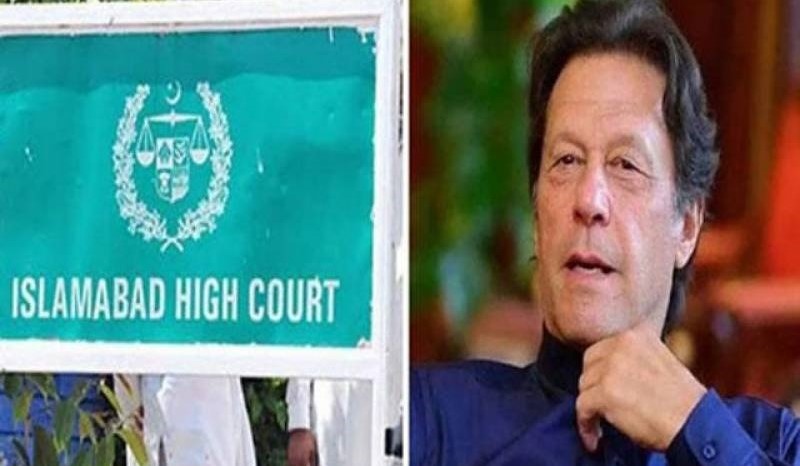The Islamabad High Court (IHC) ruled that the arrest of Pakistan Tehreek-e-Insaf (PTI) Chairman Imran Khan was legal in the Al-Qadir Trust case.
IHC Chief Justice Aamer Farooq announced the reserved verdict after examining the arrest circumstances at the court premises earlier in the day. He had initially questioned the actions of the Rangers involved in the arrest.
The IHC issued notices for contempt of court to the Islamabad police inspector general and the interior secretary. Furthermore, Chief Justice Farooq ordered an investigation into the arrest circumstances, including the manhandling of lawyers present nearby and damage to the court building. The high court registrar has been instructed to conduct the inquiry and submit a report by May 16th.
Read: PTI Chief Imran Khan Arrested at Islamabad Judicial Complex
Imran Khan, embroiled in numerous pending cases since his ousting last year, was arrested within the high court premises when he appeared for two cases. His arrest comes amid a political crisis and just hours after he alleged that a senior military officer had been involved in a plot to assassinate him.
Following the arrest, PTI supporters blocked roads in cities across Pakistan, including Islamabad, Lahore, Peshawar, and Karachi. This resulted in injuries to several individuals and damage to public property.
Read: Mobile Broadband Suspended and Social Media Restricted in Pakistan Amid Imran Khan’s Arrest
If convicted, Khan could be barred from holding public office, excluding him from participating in elections scheduled for later this year. In response to Khan’s arrest, IHC Chief Justice Farooq took notice of the matter and summoned the Islamabad Inspector General of Police (IGP) and the interior secretary to inquire about the arrest’s legitimacy.
During the hearing, the court heard from various parties, including the National Accountability Bureau (NAB) Deputy Prosecutor General, the IHC Bar Association President, and Khan’s legal counsel. The NAB prosecutor argued that the arrest was legal, while Khan’s counsel claimed it was a violation of fundamental rights and an attack on the independence of the judiciary.
After examining the evidence and hearing from all parties, the IHC declared the arrest legal and reserved the verdict.






